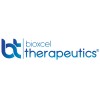
Dexmedetomidine in the Treatment of Agitation Associated With Schizophrenia and Bipolar Disorder...
Agitation,PsychomotorBipolar I Disorder4 moreIn this study, an investigational medication named BXCL501 is being tested for the treatment of episodes of agitation associated with bipolar I and bipolar II disorder, schizophrenia, schizoaffective and schizophreniform disorder. This study compares the study drug to a placebo.

Noninvasive Peripheral Nerve Stimulation for Medication-Naive and Medication-Refractory RLS
Restless Legs SyndromeProspective multi-site randomized sham-controlled study evaluating tolerability and efficacy of noninvasive peripheral nerve stimulation (NPNS) for patients with moderate-severe primary Restless Legs Syndrome (RLS) who are either medication-naive or medication-refractory.

HALO Trial: Haloperidol vs Olanzapine in Hyperactive Delirium in Palliative Care Patients; A Multi-Centre,...
HaloperidolAdvanced Cancer3 moreBackground and Clinical Need: Delirium is common at the end of life and is challenging to control. There is a clinical need to study the benefits of commonly used drugs like Haloperidol and Olanzapine in the management of hyperactive delirium in advanced cancer or end-stage organ disease patients in a scientifically robust manner. Aims/Hypotheses: The investigators aim to study the effectiveness of Haloperidol compared with Olanzapine in the management of hyperactive delirium in advanced cancer or end-stage organ disease patients receiving palliative care. The investigators hypothesise that Olanzapine is as effective as Haloperidol in the control of hyperactive delirium. Methods: The investigators will conduct a pragmatic, multi-centre, (hospital, inpatient hospice, community hospital) open-label randomised-controlled trial comparing the use of Haloperidol versus Olanzapine in advanced cancer or end-stage organ disease patients with hyperactive delirium. The primary outcome is the change in Richmond Agitation and Sedation Scale (RASS) scores among patients in each treatment group at 8 hours post-drug administration. The secondary outcome is the control of hyperactive delirium at 24, 48 and 72 hours using either Haloperidol or Olanzapine. The mean doses of Haloperidol and Olanzapine used as well as the volume of rescue Midazolam required as well as side-effects of the study medications, survival after enrolment into study will also be studied. Significance to palliative care The results of this study will advance the knowledge of delirium management worldwide with regards to the efficacy of Haloperidol and Olanzapine in managing hyperactive delirium in patients with advanced cancer or end-stage organ disease. Haloperidol is used traditionally in palliative care for managing delirium. However, as a conventional anti-psychotic, it does cause extra-pyramidal side-effects. Olanzapine, a newer atypical anti-psychotic with a more favourable side-effect profile is being used increasingly in the control of delirium. These 2 commonly used drugs have never been compared head to head in a randomised-controlled, multi-centre study.

Study to Assess the Efficacy, Safety, and Tolerability of AVP-786 for the Treatment of Agitation...
Agitation in Patients With Dementia of the Alzheimer's TypeThis study will be conducted to evaluate the efficacy, safety, and tolerability of AVP-786 (deudextromethorphan hydrobromide [d6-DM]/quinidine sulfate [Q]) compared to placebo for the treatment of agitation in participants with dementia of the Alzheimer's type.

Tachyphylaxis, Tolerance, & Withdrawal Post Treatment With Igalmi for Agitation in Schizophrenia...
Bipolar DisorderSchizophrenia3 moreThis is an in-clinic, single arm, open-label study assessing tachyphylaxis, tolerance, and withdrawal following repeated doses of Igalmi in adult males and females with agitation associated with schizophrenia or bipolar disorder.

IGC-AD1 Trial on Agitation in Dementia Due to Alzheimer's
Alzheimer DiseaseAgitation,Psychomotor9 moreThe purpose of this study is to assess the efficacy of an oral medication, IGC-AD1 that is a natural THC-based (Tetrahydrocannabinol) formulation, administered in micro doses, twice a day, on symptomatological Agitation, in patients with mild to severe dementia from Alzheimer's.

Pitolisant in Refractory Restless Legs Syndrome
Restless Legs SyndromeThis is an open-label trial in Restless Legs Syndrome (RLS) patients inadequately treated with standard therapy, defined by an IRLS score greater than 15. Investigators hypothesize that the study drug, Pitolisant (Wakix), may improve RLS symptoms.

Masupirdine for the Treatment of Agitation in Dementia of the Alzheimer's Type
AgitationAlzheimer's Type DementiaThis study will be conducted to evaluate the efficacy, safety, tolerability, and pharmacokinetics of masupirdine compared to placebo for the treatment of agitation in participants with dementia of the Alzheimer's type.

A Study to Assess the Efficacy and Safety of AXS-05 in Subjects With Alzheimer's Disease Agitation...
Agitation in Patients With Dementia of the Alzheimer's TypeAlzheimer Disease1 moreThis trial is a multi-center, double-blind, placebo-controlled, randomized study to evaluate the efficacy and safety of AXS-05 compared to placebo for the treatment of agitation associated with Alzheimer's disease.

Evaluating Sublingual Dexmedetomidine For Moderate To Severe Agitation In Inpatients With Schizophrenia...
Schizophrenia AgitationSchizo Affective Disorder2 moreAn open-label, randomized, active control inpatient trial to evaluate the efficacy and tolerability of sublingual dexmedetomidine for the treatment of agitation in inpatients with schizophrenia or bipolar disorder as measured by the Positive and Negative Syndrome Scale - Excited Component (PANSS-EC) and Agitation-Calmness Evaluation Scale (ACES). Lorazepam will serve as the active control.
